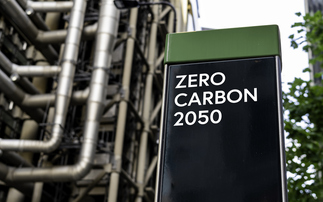Multinational brewer's 'Every Drop' strategy aims to replenish and treat all the water it uses to brew beer in water stressed regions by 2030
Heineken has ramped up its water sustainability ambitions, pledging to reduce its water usage as well as replenish and treat all the water it uses for brewing in water stressed areas around the world by 2030.
The brewing giant said its 2030 'Every Drop' strategy, which was announced yesterday, had been developed in support of UN Sustainable Development Goal number six, which is dedicated to water protection.
Under the strategy, the multinational brewer pledged to fully balance and replenish every litre of water used in its products from areas that are water-stressed, as well as to work collaboratively with other users of local water resources to protect human health and boost communities.
It also promised to maximise recovery, reuse, and recycling of its water, and to treat 100 per cent of its wastewater worldwide.
And finally, Heineken set several targets to reduce its water usage to an average of 3.3 to 2.8 hectolitres for its breweries in water stressed areas, and from 3.5 hectolitres to 3.2 on average for all its breweries worldwide.
Heineken currently treats 96.5 per cent of its wastewater worldwide in order to return it to the environment, but it today committed to go further by increasingly reusing treated wastewater in its own operations as well as sharing it with other users.
Of the 170 breweries the company operates around the world today, 26 are in water-stressed areas, it explained. Heineken said it would therefore be developing individual targets for each brewery in these water-stressed areas and prioritising the most relevant actions for each local watershed.
The company said it had developed a 'water triangle' comprising three key focus areas for action at each of these 26 breweries which would "need to be considered holistically with the aim of having the highest impact on the health of the watershed and the communities around it".
To adapt to climate change, the brewer said it would also be working with farmers to improve farming practices and test seed varieties that are more drought tolerant and disease resistant.
Water is of crucial importance to brewing beer, which is made up of 95 per cent water, but simply lowering water usage "will not be enough", according to the brewer. It therefore urged major water users across different industries to focus more on replenishing the water they use.
Jean-François van Boxmeer, Heineken CEO and chairman of its executive board, said the world needed to "pay more attention to water".
"Water is a precious, but unfortunately undervalued, resource," he explained "By 2025, two thirds of the global population could be living in water-stressed conditions. We need to do more to protect water so communities living in water-stressed areas can continue to thrive."










